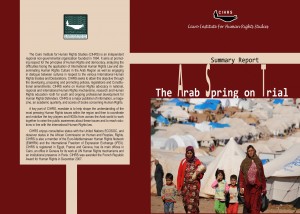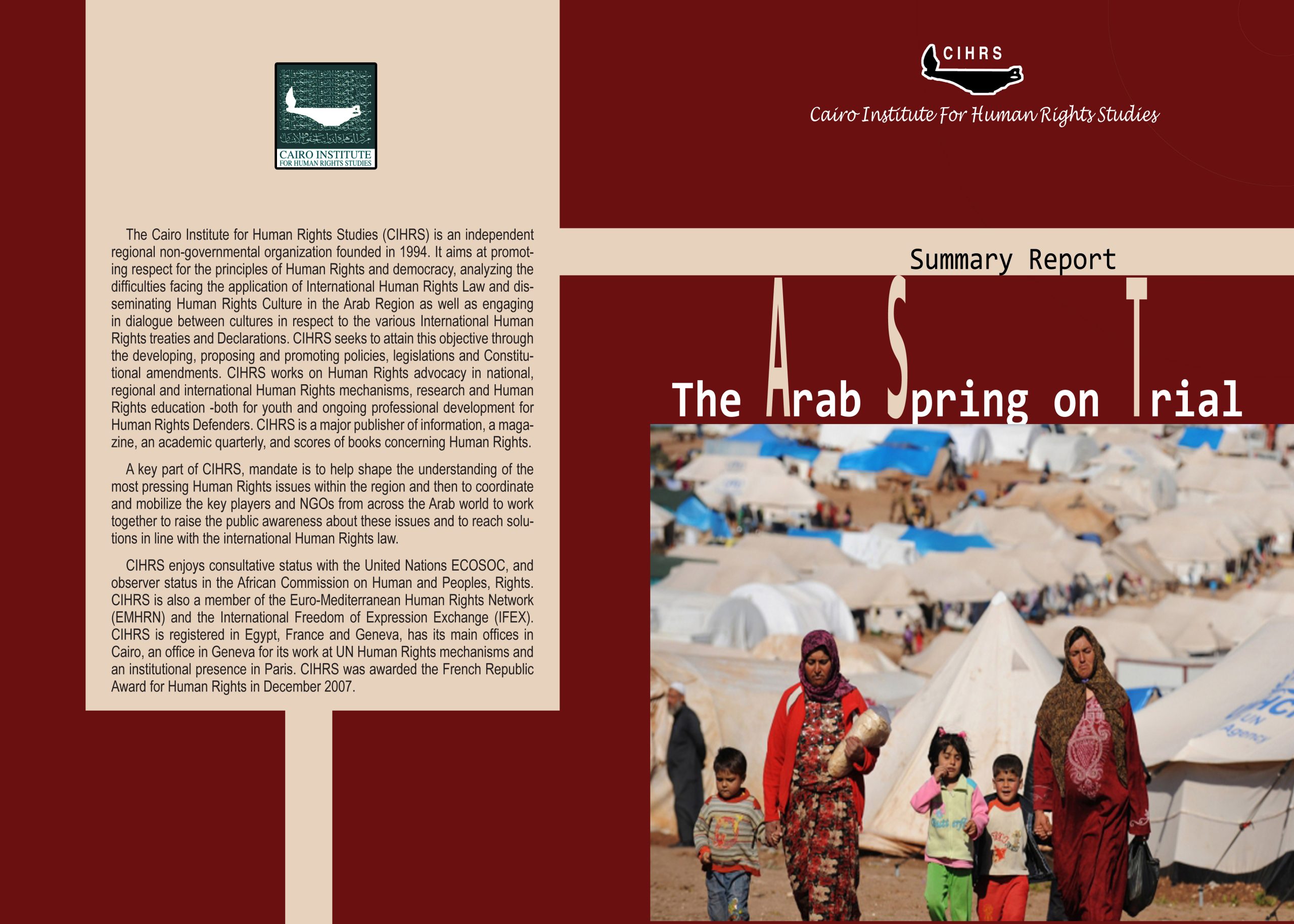 The Cairo Institute for Human Rights Studies said that the Arab world is witnessing an unparalleled deterioration in the human rights situation amid armed conflicts and civil wars resulting from the long-standing refusal of regimes to reform and change their authoritarian and autocratic natures. This has given rise to unprecedented humanitarian disasters, seen in the massive number of refugees, displaced persons, and illegal migrants from the region as well as the spread of terrorism. The Arab Spring, however, is not the cause of this deterioration. Rather, it was the last serious attempt by peoples in the region to avert this imminent decline.
The Cairo Institute for Human Rights Studies said that the Arab world is witnessing an unparalleled deterioration in the human rights situation amid armed conflicts and civil wars resulting from the long-standing refusal of regimes to reform and change their authoritarian and autocratic natures. This has given rise to unprecedented humanitarian disasters, seen in the massive number of refugees, displaced persons, and illegal migrants from the region as well as the spread of terrorism. The Arab Spring, however, is not the cause of this deterioration. Rather, it was the last serious attempt by peoples in the region to avert this imminent decline.
These are the conclusions of the sixth annual report on the human rights situation in the Arab world in 2014, issued by the CIHRS this morning under the title, “The Arab Spring on Trial.”
The report identified the most widespread types of human rights violations in the Arab world as increased extrajudicial killing combined with systematic impunity, the systematic curtailment of human rights activities and civil society, the disregard of human rights based on ostensible security and counterterrorism grounds, the curtailment of media and freedom of expression and opinion, the use of the judiciary as tool to eliminate political opponents, and hardships faced by religious and ethnic minorities.
One of the most significant events of 2014, the report says, was the qualitative development in the forces of terrorism, most prominently illustrated in the rise of the Islamic State (Daesh) as the first terrorist ‘state’ in history. “This event is the fruit of 14 years of failed counterterrorism efforts since the attacks of September 11 and the pursuit of a strategy that focuses purely on security and military approaches,” the report says, with states ignoring the fundamental roots of terrorism in the Arab world.
“This chaos is not the doing of the Arab Spring,” said Bahey eldin Hassan, the director of the CIHRS. “The Arab Spring was rather born amid such chaos, in states so tattered nothing remains but their name and a flag planted atop the ruins by the remnants of the corrupt security and military elite. Meanwhile, millions of their inhabitants wander aimlessly looking for another home, even if it is a grave in the depths of the Mediterranean Sea.”
The report attributes the growing crisis in human rights in the Arab world in 2014 to “the wide-scale, systematic perpetration of the most serious violations in many countries of the region, such as extrajudicial killing, torture, enforced disappearance, arbitrary, long-term detentions, unfair trials often ending in death sentences or long prison terms, forced displacement, and the systematic persecution of religious minorities. These crimes amounted to crimes against humanity in some countries such as Syria, Iraq, Libya, Sudan, and the occupied Palestinian territories.” The report concludes, “This bleak picture is the natural outcome of the failure of the political transitions that followed the uprisings collectively dubbed ‘the Arab Spring.”
The 30-page report was prepared by Moataz El Fegiery, with contributions from a team of researchers.
Share this Post

